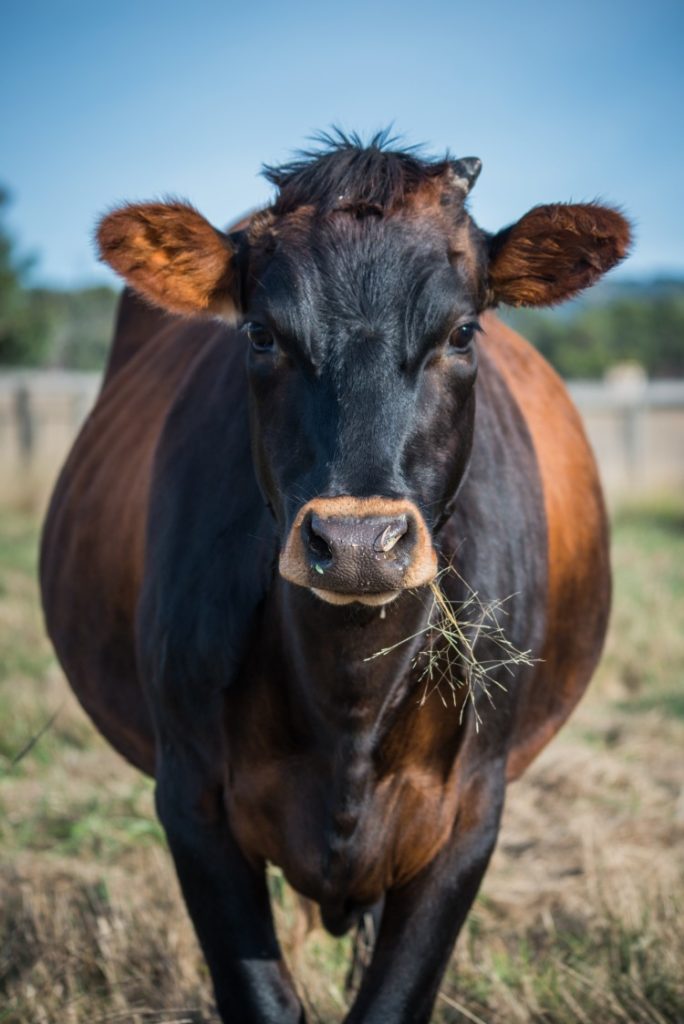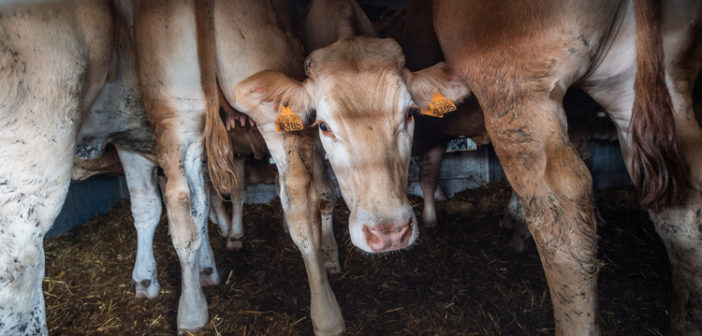In the present moment, animal liberationists’ top priority should be making cultured (also known as “lab-grown,” “cellular” or “clean”) meat less expensive and making slaughtered meat more costly. The former can be achieved through public subsidies and funding for research. The latter can be accomplished by taxation and cutting subsidies.
Obviously, the goal of both steps is to make cellular agriculture more appealing to consumers and producers. Passing laws banning slaughtered meat — similar to existing laws banning fur — is a more distant aim. It will only become politically feasible when slaughtered meat is a niche product, as animal fur has become.
Now, why should we prioritize cultured meat? First of all, it addresses the right problem. Far, far greater numbers of animals are killed for food than are used for entertainment, clothing, vivisection, or any other purpose. Second, it provides the most realistic path to ending slaughter in the shortest period of time.
Let’s talk tactics. In my view, there are two major categories: those seeking individual change and those seeking systemic change. Examples of the former tactic might include encouraging individuals to eat cultured meat or vandalizing individual businesses involved in slaughtered-meat production. While there might be other objections to these tactics, the primary one should be that they’re insufficient.
We need to focus on tactics seeking systemic change in order to influence the behavior of individual people and companies. This means changing laws. I recently interviewed some people knowledgable about cellular agriculture, asking them what can be done to advance cultured meat at the local, state, national, and international levels.
“In the same way municipalities can tax products like tobacco, they would be able to theoretically tax meat, as well,” said Paul Shapiro, author of Clean Meat: How Growing Meat Without Animals Will Revolutionize Dinner and the World. He added that states could provide grants to institutions and startups working on cultured-meat research.
According to Derin Alemli, director of operations and finance at New Age Meats, the most important thing the federal government could do is to provide public funding for research. “During the coronavirus pandemic alone, the US will invest $36 billion to prop up the existing meat production system,” Alemli said. “Instead, with that same $36 billion, the government could accelerate the transition to cultivated meat technology.”
Justin Kolbeck, the cofounder and CEO of Wildtype, struck a similar note. “We’re delighted to see that the National Science Foundation awarded what we believe to be the first cellular agriculture grant to University of California Davis,” he said. “We as a nation need to do much more. Singapore, for example, has a national initiative designed to support alternative proteins generally, with a specific focus on cell-based meat and seafood.”

Internationally, the United Nations has a role to play. “The UN’s Task Force on Global Food and Nutrition Security could help work with governments across the globe to create uniform standards for bringing cultivated products to market,” Alemli said. “Regulation of these products is going to be a major hurdle for our industry.”
Besides ensuring unsafe products don’t damage the industry’s reputation, uniform standards would help accelerate the spread of cellular agriculture. “There will be opportunities to harmonize regulatory systems between nations so producers will not have to seek regulatory approval in each country,” Kolbeck said. “This kind of international collaboration exists in many other contexts.”
Of course, not all animal liberationists are on board with this path. There’s a website called Clean Meat Hoax, which highlights a number of anti-speciesist writers who are critical of cellular agriculture. It’s a disappointing read. I respect many of the people quoted, but, in my view, their positions on the most important issue of the day are off base.
Some of the statements are factually incorrect. For instance, Gary Francione wrote: “Animals are killed in the process of producing cultured meat. If you believe that animals have moral value and possess moral rights, you don’t support killing animals.” He’s referring to the use of fetal bovine serum as a growth medium. To be fair to, Francione wrote these words in 2018. But it wasn’t necessarily true then either.
As the executive director of the Good Food Institute pointed out on his organization’s website, back in 2017, cellular agriculture companies are phasing out the use of fetal bovine serum (FBS). “FBS is extremely inconsistent from batch to batch, making it difficult to create consistency in the final product—which is absolutely critical in the mass production of any food,” Bruce Friedrich wrote. “Also, the stuff is incredibly expensive—there is no way clean meat will ever be commercially viable if FBS is used.”
Shapiro echoed this point in his book. “Just one liter of fetal bovine serum can cost around $500, making it a financial, as well as an ethical, problem,” he wrote. “Fortunately, several cellular agriculture companies have already completely done away with such serum, typically by using plant-based or synthetic serums or by simply figuring out ways of going serum-free.”
Friedrich didn’t let the early use of fetal bovine serum cloud his judgment of cultured meat, and — in the context of a global animal holocaust, when the potential benefits are so great — that’s the correct approach. “While I resonate with that concern as a 30-year vegan myself, the idea that even vegan foods are entirely cruelty-free is an illusion,” he wrote. “As just one example, animals die by the millions in harvesting, even as farmers kill millions more ‘pest’ animals intentionally.”
A good example of another objection is supplied by Justin Van Kleek. “As long as the culture of meat is not challenged — which cultured meat doesn’t do — I don’t believe that real, live animals will ever get off the plate either,” he wrote. “By propping up meat, ‘clean’ meat perpetuates the speciesist view that animals are meat and thus perpetuates violence.”
Perhaps it’s an unfair comparison, but one could similarly object to plant-based burgers, because they don’t challenge the culture of burgers. I think most people recognize there is something ethically wrong about our relationship with food animals. Cultured meat will make it easier for these people to align their values and actions, in the same way tasty plant-based options have made it easier for animal liberationists to do so.

Maybe eating flesh is inherently problematic. But one must imagine animals would overwhelmingly prefer we eat the cultured variety. Let’s not allow ourselves to become so academic, so ideologically pure, that we miss the forest for the trees or make the perfect the enemy of the good. Insert your preferred cliche here. There is far, far too much at stake.
Finally, more issues center on criticism of capitalism or doubts regarding technology’s ability to affect change. “There is no market-based solution to humanity’s mass violence towards animals,” Dinesh Wadiwel wrote. “We should further be highly suspicious of glimmering ‘techno-fixes’ that promise to resolve the problem of human domination of animals.”
Speaking for myself, I’m not celebrating capitalism. I’m a socialist. I’d prefer this technology was being put forward by publicly-owned enterprises. But I’m an animal-liberationist above all else, and willing to promote private interests if it has any chance of helping nonhumans. As Karl Marx acknowledged, technology has frequently opened the door to change.
“Social relations are closely bound up with productive forces,” he wrote. “In acquiring new productive forces men change their mode of production; and in changing their mode of production, in changing the way of earning their living, they change all their social relations. The hand-mill gives you society with the feudal lord; the steam-mill society with the industrial capitalist.”
I don’t mean to sound like a technological determinist. Perhaps cultured meat will establish the conditions under which animal liberation starts to become possible. But it won’t make activism unnecessary. Despite the various incentives to adopt cultured-meat production, many will cling to old ways. Campaigners will be needed to marginalize reactionaries and push for laws banning nonhuman exploitation.
Ultimately, these writers highlighted by Clean Moat Hoax have a relatively small reach. The flesh-eating majority are the ones who really need to be convinced about the benefits of cellular agriculture. Still, these writers’ audience should be the technology’s most fervent promoters, and it’s unfortunate to see them lead their followers astray.
Featured image: cows being transported for slaughter. Image credit Jo-Anne McArthur / Eyes On Animals.





